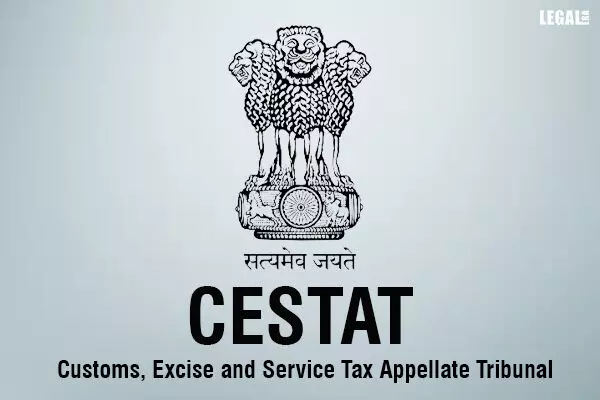- Home
- News
- Articles+
- Aerospace
- AI
- Agriculture
- Alternate Dispute Resolution
- Arbitration & Mediation
- Banking and Finance
- Bankruptcy
- Book Review
- Bribery & Corruption
- Commercial Litigation
- Competition Law
- Conference Reports
- Consumer Products
- Contract
- Corporate Governance
- Corporate Law
- Covid-19
- Cryptocurrency
- Cybersecurity
- Data Protection
- Defence
- Digital Economy
- E-commerce
- Employment Law
- Energy and Natural Resources
- Entertainment and Sports Law
- Environmental Law
- ESG
- FDI
- Food and Beverage
- Gaming
- Health Care
- IBC Diaries
- In Focus
- Inclusion & Diversity
- Insurance Law
- Intellectual Property
- International Law
- IP & Tech Era
- Know the Law
- Labour Laws
- Law & Policy and Regulation
- Litigation
- Litigation Funding
- Manufacturing
- Mergers & Acquisitions
- NFTs
- Privacy
- Private Equity
- Project Finance
- Real Estate
- Risk and Compliance
- Student Corner
- Take On Board
- Tax
- Technology Media and Telecom
- Tributes
- Viewpoint
- Zoom In
- Law Firms
- In-House
- Rankings
- E-Magazine
- Legal Era TV
- Events
- News
- Articles
- Aerospace
- AI
- Agriculture
- Alternate Dispute Resolution
- Arbitration & Mediation
- Banking and Finance
- Bankruptcy
- Book Review
- Bribery & Corruption
- Commercial Litigation
- Competition Law
- Conference Reports
- Consumer Products
- Contract
- Corporate Governance
- Corporate Law
- Covid-19
- Cryptocurrency
- Cybersecurity
- Data Protection
- Defence
- Digital Economy
- E-commerce
- Employment Law
- Energy and Natural Resources
- Entertainment and Sports Law
- Environmental Law
- ESG
- FDI
- Food and Beverage
- Gaming
- Health Care
- IBC Diaries
- In Focus
- Inclusion & Diversity
- Insurance Law
- Intellectual Property
- International Law
- IP & Tech Era
- Know the Law
- Labour Laws
- Law & Policy and Regulation
- Litigation
- Litigation Funding
- Manufacturing
- Mergers & Acquisitions
- NFTs
- Privacy
- Private Equity
- Project Finance
- Real Estate
- Risk and Compliance
- Student Corner
- Take On Board
- Tax
- Technology Media and Telecom
- Tributes
- Viewpoint
- Zoom In
- Law Firms
- In-House
- Rankings
- E-Magazine
- Legal Era TV
- Events
CESTAT allows exemption to RBR Knit Process under ‘Koch Membrane Systems’

CESTAT allows exemption to RBR Knit Process under ‘Koch Membrane Systems’
The Company was issued a demand notice requiring the payment of duty along with interest
The Chennai Bench of the Customs, Excise and Service Tax Appellate Tribunal (CESTAT) has ruled in favor of RBR Knit Process Pvt. Ltd. (importer), holding that it was eligible to avail the exemption under Notification No. 14/2004-Cus on the imported goods, i.e., Koch Membrane Systems (KMS).
The Tribunal determined that the goods were membrane systems based on the technical literature and previous rulings.
The importer had registered under the Project Import Scheme and cleared two consignments under KMS. However, during the assessment process, it was determined that the Reverse Osmosis Plant, categorized as a composite machinery, was not eligible for the concessional rate of duty under project imports. This was based on import’s Regulation 3(a)(ii), which stated that a single composite machinery was not included in the definition of an industrial unit. Therefore, a demand notice was issued, requiring the payment of duty along with interest.
The adjudicating authority reviewed the case and concluded that the exemption, as per the notification, applied only to composite water treatment plants. Therefore, the imported goods were not eligible for the exemption.
The importer then appealed before the Commissioner of Income Tax (Appeals), who, in the impugned order, set aside the original authority's ruling.
The two-member bench of Sulekha Beevi CS (Judicial Member) and Vasa Seshagiri Rao (Technical Member) referred to the C.C. (Import) vs Rochem Separation Systems India Ltd.[LQ/CESTAT/2009/2728] case, wherein it was held that the Reverse Osmosis Membrane Filtration System fell within the meaning of 'plant' used in the definition of a water supply project.
The Bench further noted that the importer submitted an installation certificate describing the goods as an 'effluent treatment unit' with reverse osmosis for water re-use. Based on the evidence, the imported goods were membrane systems and eligible for exemption.


